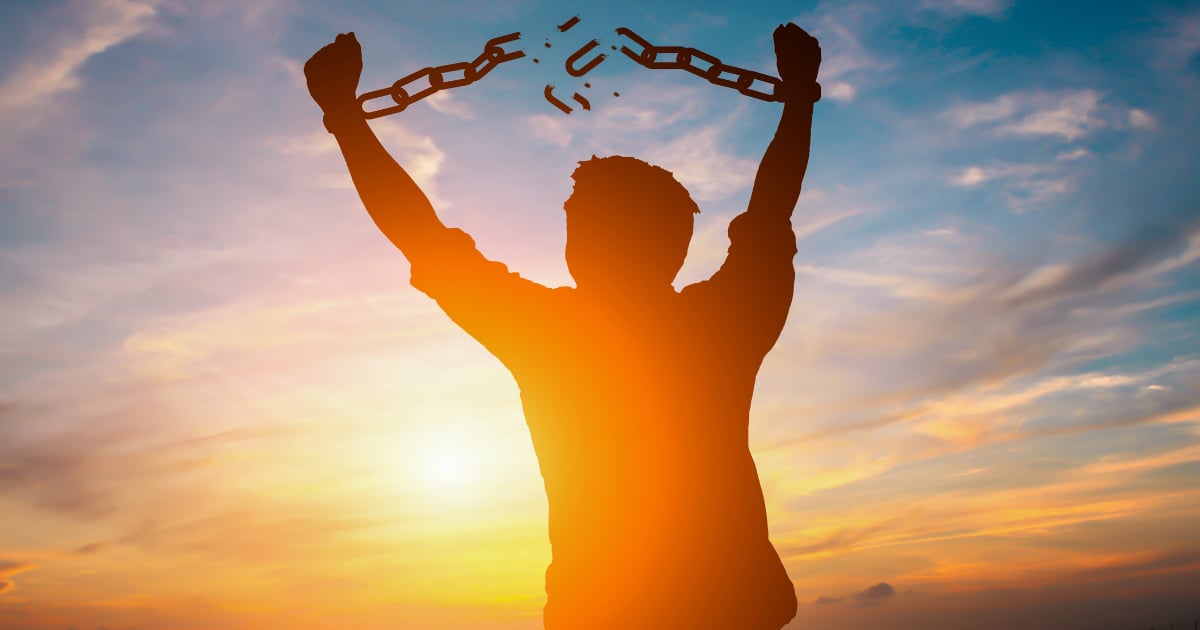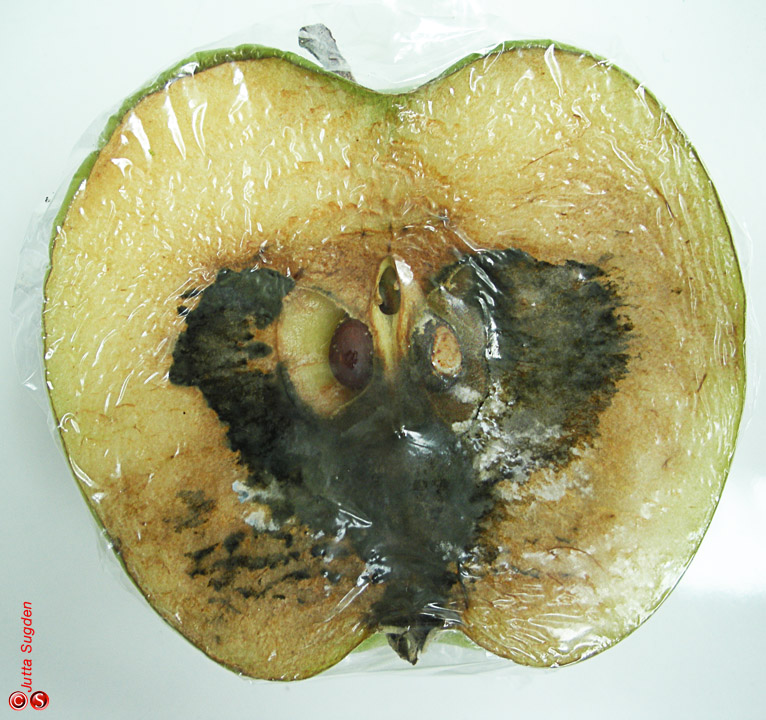Jesus said, “For if you forgive men their trespasses, your heavenly Father will also forgive you. But if you do not forgive men their trespasses, neither will your Father forgive your trespasses (Matt. 6:14-15).
Jesus spoke these words immediately after teaching His disciples to ask God to forgive “my” sins (transgressions) as I forgive those who sin against me. Knowing that if I don’t forgive others, God won’t forgive me is a convincing reason to forgive quickly.
But sometimes the wounds are deep and forgiveness is hard. If that’s where you are, choose to forgive, and ask the Lord for His help.
If forgiveness doesn’t seem to stick or if the pain hangs around, returns, or bitterness creeps in, then consider something I learned from Rich Gartrell as he prayed with somebody who lacked freedom in the Lord because of deep wounds that continued to haunt them.
He pointed out that there are three aspects of full forgiveness. (1) Forgive the person; (2) Forgive what the person did; and (3) Forgive the person for the consequences of their action(s).
1. Many times, with simple offenses, when you forgive the person, it’s a done deal. The air is cleared and all is well in the relationship.
2. However, if the dividing wall still stands, if you still feel the need to defend yourself or help them understand where they wronged you, more work needs to be done. In your heart, (out loud if it’ll help), forgive the person for what they did. If you judged them for their sin, name the sin. Be specific as you offer forgiveness.
3. If the wound is deep or if unforgiveness lingers, forgive the person for the consequences of their actions. Examples when this could, and probably would, be needed are cases of abuse that left feelings of shame, guilt, or worthlessness. It could also be from infidelity and/or desertion of a spouse that leaves lasting damage to the children. In both, the consequences are great and are lasting.
Often, after making the hard choice to forgive the perpetrator of these—and similar offenses—the unforgiveness pops back up when a consequence is obvious once again, or even from a memory. If and when that happens be sure all three steps of forgiving have been taken.
If you have forgiven the person, their actions, and the consequences and feelings of unforgiveness pops up again,
1. then declare, “Get behind me, Satan. I’ve forgiven ___. All he/she did is in the Lord’s hands now, so talk to Him.” or
2. then forgive again if needed—even to seventy times seven times (more than we can keep count of). After telling Peter that we’re to forgive seventy times seven times He told a parable about a master forgiving a slave, and the slave then refusing to forgive one who borrowed a smaller amount from him. When the master found out, he was angry and delivered him to torturers until he paid.
Jesus then closed with, “So My heavenly Father also will do to you if each of you, from his heart, does not forgive his brother his trespasses (Matt. 18:35).
Torturers are real, and they aren’t always in dungeons. They attack through doubts, and thoughts and feelings of guilt, shame, worthlessness, inadequacy and the list goes on. They also exhibit themselves in sleeplessness, arthritis, joint pain, autoimmune diseases, digestive issues, and more. And in emotional and relational issues such as anger, bitterness, fear, anxiety, need to control, and more.
Note: It’s not that these are always caused by unforgiveness, but doctors often say that many physical illnesses have a spiritual base, and unforgiveness is a source of bondage to torturers even today.
If your pain is so deep that forgiving the perpetrator is too difficult, and yet you want to obey the Lord and experience freedom from the bondage that it brings, release that person to Jesus. Include the things he/she did, and the consequences. You’ve carried the burden long enough. Would you trust it to Him? He’s willing to take it. Furthermore, He declared, “Vengence is mine.”
He loves you and wants you to be free. He’s powerful and just. He will carry it for you. Will you trust Him with the burden?
Then thank and praise Him for His goodness and love!
 spasses—as we forgive our debtors—or those who trespass against us.”
spasses—as we forgive our debtors—or those who trespass against us.” us of them or who inflict a similar offense. Then our souls become so infected with unforgiveness, bitterness, and anger that our whole view of life is affected.
us of them or who inflict a similar offense. Then our souls become so infected with unforgiveness, bitterness, and anger that our whole view of life is affected. reedom will be upon truly forgiving. Jesus died so that we could enjoy righteousness (right relationships), peace, and joy, but we can block the flow of those blessings if we don’t forgive.
reedom will be upon truly forgiving. Jesus died so that we could enjoy righteousness (right relationships), peace, and joy, but we can block the flow of those blessings if we don’t forgive. apple pie that comes back their way.
apple pie that comes back their way.
 ents are unchurched and many of the children are unfamiliar with Jesus, much less the story of the crucifixion and resur-rection. The children had a program which shared the story before they had their egg hunt.
ents are unchurched and many of the children are unfamiliar with Jesus, much less the story of the crucifixion and resur-rection. The children had a program which shared the story before they had their egg hunt. “Nobody should have control of another person the way that man took control over my life.” The conviction in Alex’s voice left no doubt that she was right.
“Nobody should have control of another person the way that man took control over my life.” The conviction in Alex’s voice left no doubt that she was right. When asked what led her, a 13-year-old, to forgive her offender while still in the hospital, Alex answered without hesitation. “Nobody should have control of another person the way that man took control over my life. And I didn’t want him to control me any more. I wanted to live my own life fully. I forgave him so I could move on with my life.”
When asked what led her, a 13-year-old, to forgive her offender while still in the hospital, Alex answered without hesitation. “Nobody should have control of another person the way that man took control over my life. And I didn’t want him to control me any more. I wanted to live my own life fully. I forgave him so I could move on with my life.” because secrets about them have been revealed. Things they have kept hidden are now in the spotlight for all the world to know. It’s impossible to hide a secret well enough that God’s spotlight can’t find it in the darkness.
because secrets about them have been revealed. Things they have kept hidden are now in the spotlight for all the world to know. It’s impossible to hide a secret well enough that God’s spotlight can’t find it in the darkness. The woman’s guilt was obvious. She was caught in the act, but Jesus, the Son of God, did not join in the chorus of condemnation. Instead, He turned the spotlight on the accusers.
The woman’s guilt was obvious. She was caught in the act, but Jesus, the Son of God, did not join in the chorus of condemnation. Instead, He turned the spotlight on the accusers. o not practice the truth; but if we walk in the light as He Himself is in the light, we have fellowship with one another, and the blood of Jesus His Son cleanses us from all sin” (1 John 1:5-7).
o not practice the truth; but if we walk in the light as He Himself is in the light, we have fellowship with one another, and the blood of Jesus His Son cleanses us from all sin” (1 John 1:5-7).